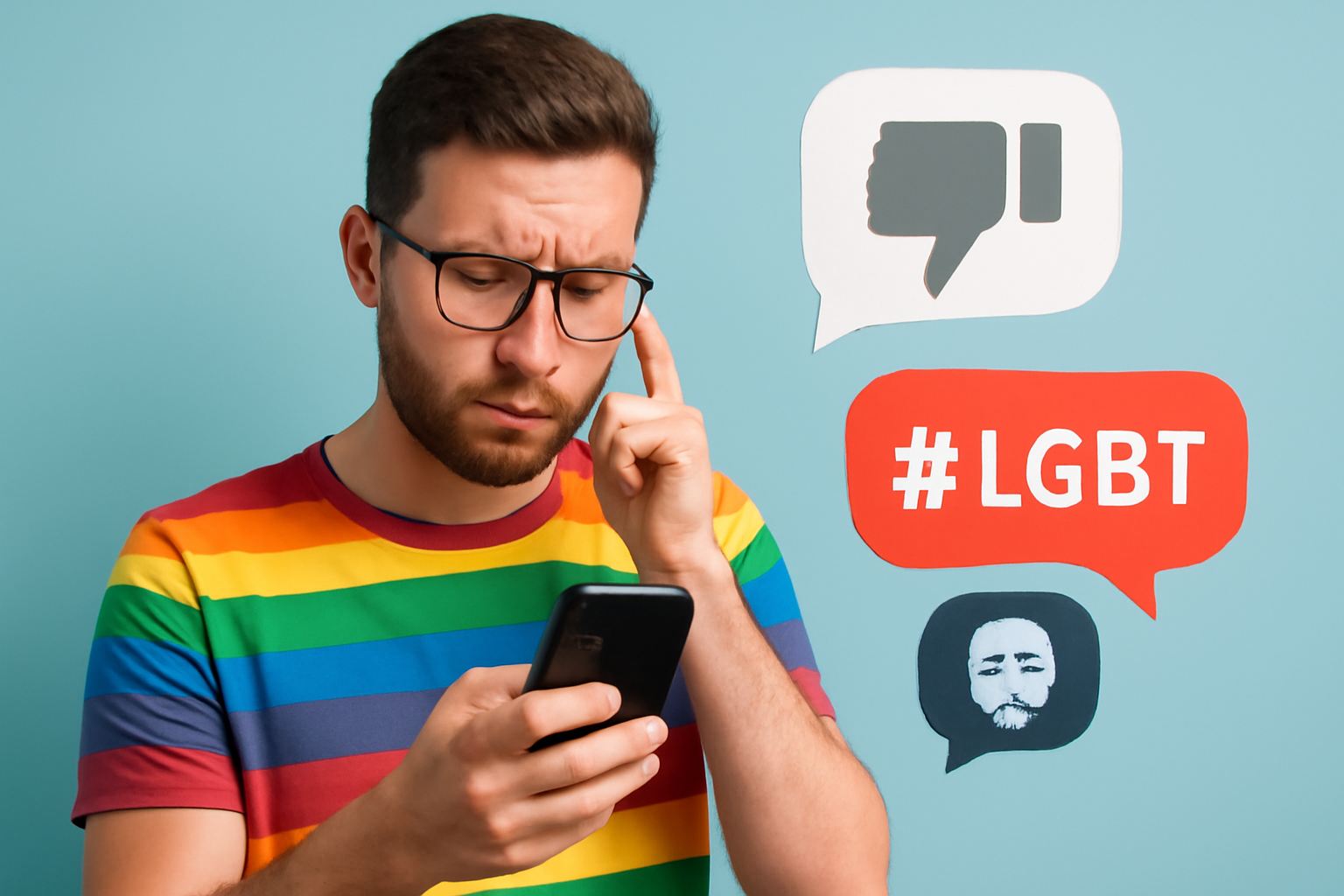
Introduction
In recent years, social media platforms have become vital spaces for LGBTQ+ communities to connect, share experiences, and raise awareness about issues affecting them. However, the policies and practices of these platforms often come under scrutiny. A recent debate has centered around how one major social media company handles LGBTQ+ content, especially concerning the use of slurs and dehumanizing language.
Challenges Faced by LGBTQ+ Users
LGBTQ+ individuals often rely on social media not only for community building but also for accessing crucial information and finding support. Unfortunately, these platforms can sometimes become hostile environments due to the prevalence of hate speech and discriminatory remarks. While many platforms have community guidelines in place to combat hate speech, the enforcement of these guidelines can vary significantly.
One of the critical issues raised is the inconsistent handling of hate speech, particularly dehumanizing language targeted at LGBTQ+ people. Users have reported instances where slurs and offensive remarks were not taken down, leading to feelings of vulnerability and mistrust toward the platform's moderation policies.
Moderation Policies and Their Impact
Effective content moderation is crucial for maintaining a safe and inclusive environment online. However, the complexity of moderating speech across billions of posts can lead to gaps in policy enforcement. Critics argue that the algorithms and human moderators employed by some social media giants do not always adequately protect marginalized groups from harmful content.
There is concern that certain slurs and derogatory language are being allowed under the guise of "free speech," despite their harmful impact. This raises questions about the criteria used to determine what constitutes acceptable speech and hate speech.
For many LGBTQ+ users, the presence of dehumanizing language on these platforms is more than just words; it is a reminder of broader societal discrimination and exclusion. As a result, some question the platform's commitment to fostering a truly inclusive space.
Community Response and Advocacy
In response to these challenges, LGBTQ+ advocates and allies have been vocal in demanding better protection from hate speech on social media. They argue for clearer guidelines, more rigorous enforcement, and greater transparency in how content is moderated.
Activists emphasize the need for social media companies to engage with LGBTQ+ communities directly to understand their concerns and work collaboratively on solutions. Initiatives such as inclusive policy development and sensitivity training for moderators have been suggested as potential ways forward.
The Way Forward
As conversations around online safety and inclusion continue, it is essential for social media companies to reassess their policies and practices. By prioritizing the safety and well-being of LGBTQ+ users, these platforms can contribute to a more inclusive digital landscape.
Ultimately, fostering a respectful and supportive online environment benefits not only LGBTQ+ individuals but all users. It promotes a culture of empathy and understanding, which is crucial for social progress.
Moving forward, it will be important for social media platforms to listen to the voices of affected communities and implement meaningful changes that reflect a genuine commitment to inclusivity.
In conclusion, while social media has the potential to be a powerful tool for connection and community-building, it also carries the responsibility of protecting its users from harm. By addressing the challenges faced by LGBTQ+ individuals and ensuring robust moderation practices, platforms can help create safer online spaces for everyone.
Related Posts
Triumphant Trans Woman Wins Legal Battle and Inspires Others to Stand Up for Their Rights
Breaking new ground: a landmark victory in transgender rights After battling in courtrooms and enduring endless challenges, Diana Portillo, a transgender woman, has secured a monumental victory in her decade-long fight against workplace discrimination. The result? Nearly $1 million awarded in a historic settlement. But this isn't just a win on paper—it represents a powerful precedent in combati [...]
Pride Month in Latin America: Protests and Demands for Equality
**Celebrating Pride and advocating LGBTQ+ rights in Latin America** Pride Month in Latin America was a lively mix where celebration met activism. Communities united, not just throwing a party but making a stand—demanding equality and pushing governments toward better protection and rights recognition. Throughout Latin America, pride events erupted in marches and cultural displays, each with a c [...]
Transgender Erasure Actions Implemented by National Park Service
```html Trump administration's impact on national park service and transgender recognition The Trump administration made notable moves in undermining transgender representation, which included directing agencies like National Park Service not include "T" and "Q" when they refered “LGBTQ” in any official communication. This move seems part a broader plan by this administration aimed at reducin [...]